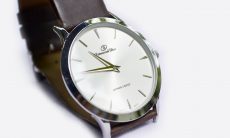Most of us hold professionalism in high esteem. We consider ourselves professionals of one sort or another. We try to “act professional.” But more and more, I am running into professionalism run amok. When professionalism starts to mean that you are the expert and you don’t make any mistakes, I think it’s misguided.
If it’s considered unprofessional to admit mistakes, then you’re endangering your relationships on the cross of professionalism. Instead, your relationship with your customers are enhanced by admitting your mistakes, apologizing for them, and understanding how to do better in the future.
Unfortunately, I often see professionalism distorted to mean that “we don’t admit mistakes.”
When a customer calls to complain about mistreatment and the customer service person explains their policy, without trying to heal the wound, that may be professional but it’s not relational. It’s not real.
When a teacher or a doctor makes a mistake, if they equate professionalism with defensiveness, they are showing more concern about being sued than being human. My opinion is that people are more likely to sue those they are angry with and have no relationship with. Granted, your child’s education or health is an emotional issue and none of us wants any mistakes made. But when they inevitably are made, what is the appropriate response? If it were your child, what would you want to hear?
Marketing is not as serious, so it should be even easier for marketers to admit mistakes. But do we?
Today, in your job, try to develop a thicker skin. Try to listen—really listen—it’s the only way to improve. The old ways were to make decisions and try to convince everyone that they were right. The new way is to listen and adapt based on what your customers think. That’s what “do it wrong quickly” is all about—you need to listen to know how wrong you are. And your professionalism should give you the self-confidence to experiment rather than the self-righteousness of defensiveness.



